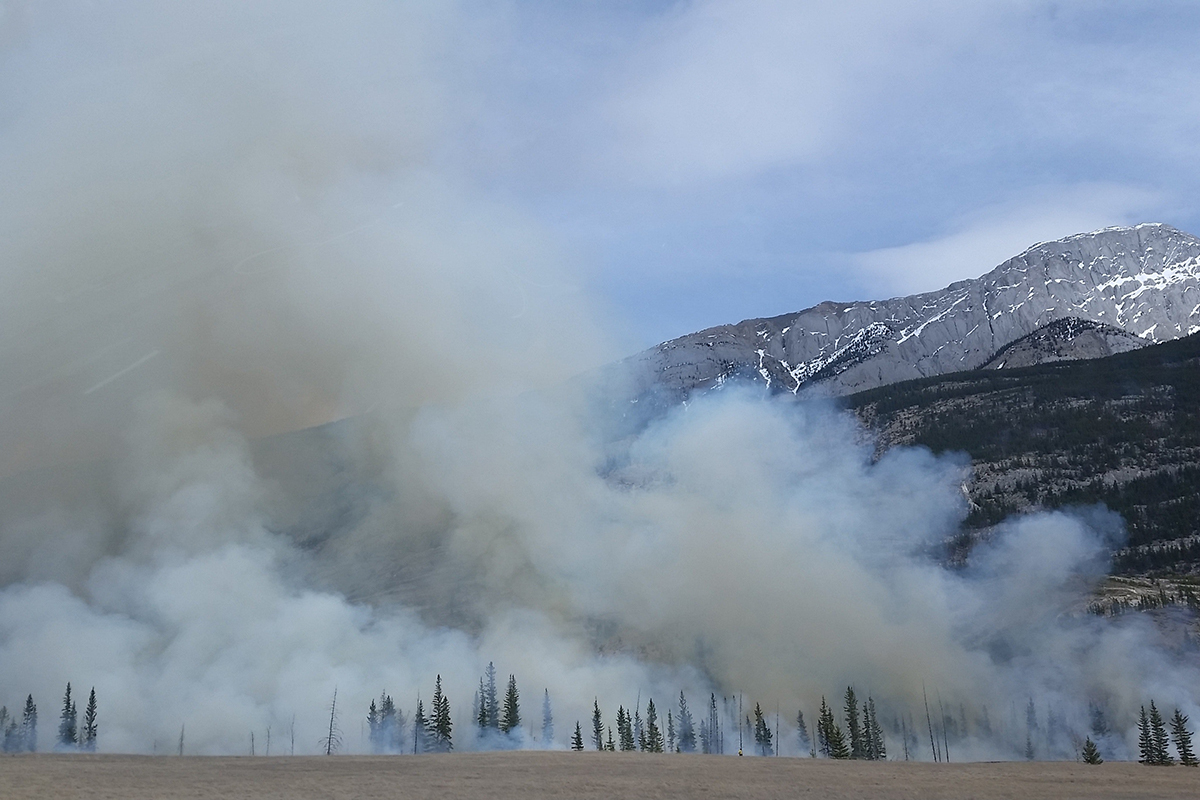EarthTalk®

The smoke from Western wildfires can carry for thousands of miles and affect communities far from the burning. Credit: Pixabay.
From the Editors of E – The Environmental Magazine
Dear EarthTalk: How has all the wildfire smoke in the West over the last few summers impacted human health? And what can we do to stay safe amidst the smoke? — B.K., Philadelphia, PA
The smoke from Western wildfires can carry for thousands of miles and affect communities far from the burning. Credit: Pixabay.
Blanketing the atmosphere with thick veils of black smoke and turning skies a hazy orange hue, wildfires have ravaged the Western U.S. as long as anyone can remember. Though wildfires are natural and a critical component of a healthy forest ecosystem, unusually large and lengthy fires have now become the norm across much of the American West.
The year 2020 was record-breaking for wildfires in the U.S. The August Complex fire in Northern California alone torched more than a million acres of land—making it the state’s first ever “gigafire.” And Californians are bracing for more. With temperatures rising around the globe due to climate change, wildfires have only expanded in size and hazard, raising widespread concerns over the impacts of the smoke and how to mitigate the negative health effects.
Wildfire-released pollutants pose many ecological threats, which in turn have both short- and long-term health hazards for nearby communities. Most troublesome may be the PM 2.5 particulate, given that it is small enough to enter the lungs as well as the bloodstream, potentially impacting both the cardiovascular and respiratory systems. In the short-term, these pollutants can lead to eye and nasal irritation, heart attacks and strokes, while longer term exposure can cause permanent damage to the heart and lungs.
While efforts in recent decades to reduce pollution from factories and automobiles have reduced the particulate pollution burden on Americans significantly, wildfires are bringing PM 2.5 levels back up into hazardous territory for many across the West, at least during wildfire season. Wildfire smoke also contains many other hazardous pollutants, like carbon monoxide and toxic ash, as well as carbon dioxide that contributes to global warming.
The more we know about the potential health impacts of wildfire smoke, the better we can protect ourselves and our loved ones. Wildfire pollution can circulate in the atmosphere for weeks. During the warmer months, consistently check local air-quality reports and read visibility guides before heading outdoors. If you have to go outside in smoky summer weather, wear an N95 mask, which filters most PM 2.5 particulates. However, health-sensitive groups are always at a risk, even with N95 masks. If the surrounding air quality is rated hazardous, everyone should avoid the outdoors as much as possible and take preventive steps like installing an air filter indoors.
If you live in the West (or anywhere arid) and are hoping for a reprieve from smoky skies this summer, don’t hold your breath. According to scientists at San Jose State University, 2021 is looking to be an even worse year for wildfires than last year’s record breaker due to excessively low levels of winter moisture across much of the West. The upshot seems to be that we better just get used to it.
CONTACTS:
Silent calamity: The health impacts of wildfire smoke, https://yaleclimateconnections.org/2021/05/silent-calamity-the-health-impacts-of-wildfire-smoke;
Could Wildfires Have Long-Term Health Effects? webmd.com/lung/news/20200925/could-wildfires-have-long-term-health-effects;
Health effects of wildfire smoke in children and public health tools: a narrative review, nature.com/articles/s41370-020-00267-4;
CDC’s Wildfire Smoke Info, cdc.gov/disasters/wildfires/smoke.html.
EarthTalk® is produced by Roddy Scheer & Doug Moss for the 501(c)3 nonprofit EarthTalk. See more at https://emagazine.com. To donate, visit https//earthtalk.org. Send questions to: question@earthtalk.org.
